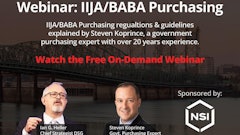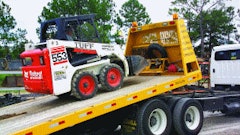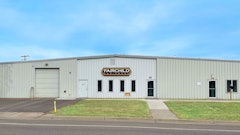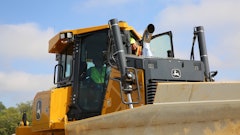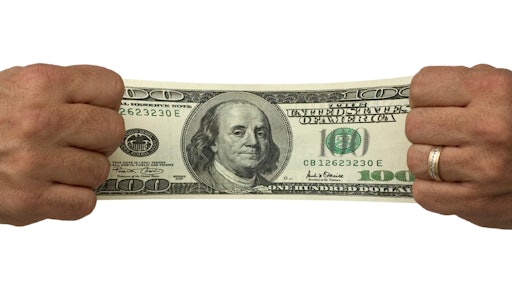
Most contractors who are confident in their estimating and desirous of making some money will hear some of the following comments from customers:
- “Gosh, I didn’t think it cost this much.”
- “OK, is there any sort of discount if I pay cash?”
- “Well, guess I’ll need to wait till next year.”
- “I’m still waiting on some other estimates.”
- “That’s quite a bit higher than I thought it would be.”
Every one of these comments from a customer can be code for “You’re too high!” So, how do you overcome this most obvious of objections? Let me share two time-tested techniques that might assist you. (For more “ammo” on overcoming customer objections be sure to sign up for my weekly column. More on this later.)
#1 Putting Cost Comparisons in Perspective
When a customer responds with, “Your bid is too high,” try the following response; remember to be respectful:
“Mr. Jones, I noticed that you drive a newer model Chevrolet Impala. I’m sort of interested in the difference in prices of cars from one year to another. Did you know that an Impala in 1987 cost about $13,500? When I checked on a late model Impala I found that the price is now about $26,000 with a few simple bells and whistles on it.”
While I really want to say, “Look, Mr. Jones, everything in life costs more than it did in the past…and you know it… ‘Knuckle-head.’ “ Of course I wouldn’t say this to his face…but I’d think it.
One clever client of mind actually has a few marketing pieces that show a car model, the Taurus in one example, and what it cost new in 1984 and what that same car model, with a picture, cost in 2013. He actually uses this early in his relationship-building to “soften the underbelly” of the customer so the customer isn’t so price shocked when he gets a bid to overlay or sealcoat a parking lot.
Some customers think they know more about construction than any contractor alive. Fewer customers know anything about pavement maintenance. And still fewer customers have a clue as to what materials, labor, equipment etc. cost today. Don’t get defensive when customers hit you with “You’re too high” comments…Go on offense!
Now, while we might find that certain mark-ups might not land work in one area of our market, don’t give in too quickly before reminding customers as to what they’re paying for other services and products.
#2 Turning a Customer’s Response… to Your Competitor
I’ve had clients who have shared with me that a customer will actually tell them something like, “Your bid is $10,000 more than the other two I received. Why are you so expensive?”
Hey, don’t let this question put you back on your heels. Respond to them with something like:
“Well, before I address this, let me ask you Mr. Jones,
Why do you think they are $10,000 ‘cheaper’ than my bid?
Let me share with you why they can afford to be ‘cheaper’ than my bid.
They talk ‘quality’ but I give you a warranty.
They talk about ‘quality craftsmanship,’ but my guys have a combined
75 years of expertise and we take you on a pre-start jobsite walk,
a mid-completion jobsite walk, and a post-job walk,
taking pictures all along the way for your benefit.
They talk about ‘great customer service’ but we provide
you with a work schedule before we start and confirm
each completion point through the end of the project.
And, they talk about ‘safety’ but my guys are certified for
20 hours of safety training with a recognized
safety inspector.”
“Come on, man!” how much more impressed will the customer be with your response over just a dealing with a higher bid?
Keep one final thought in mind here: Most contractors know enough not to argue with a customer. But this doesn’t mean we should put our tail between our legs and walk away without a credible, and respectful response!
This second point is less argument and more defining the “unique selling proposition” that differentiates your from your competitors. You might be quick, smooth, and calm explaining those items that make you different, and therefore better, than your competition.
Here’s to separating your company from the competition.
Known as The Contractor's Best Friend, Brad Humphrey continues to write and speak in support of the construction industry. His international podcast, sponsored by AC Business Media and Caterpillar, continues to be one of the favorites of suppliers and contractors alike. As Vice President of Pavecon Ltd., a large and growing pavement maintenance contractor, Brad continues to develop, teach, write and shre his 35-plus years of industry knowledge.




















